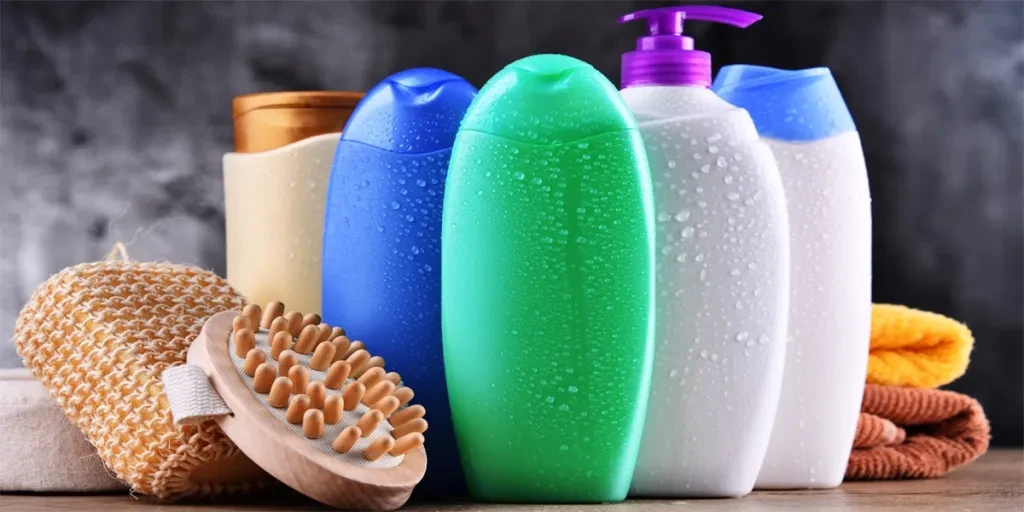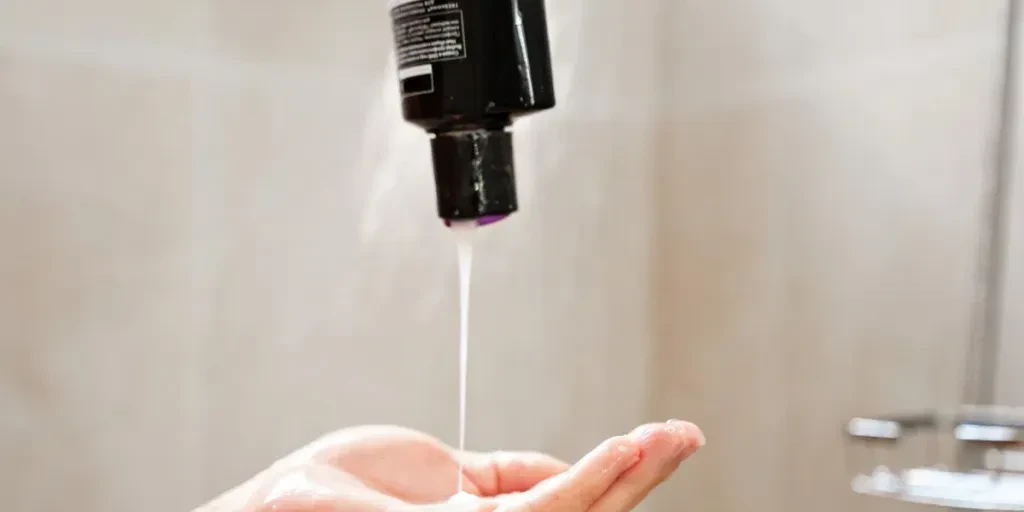The beauty industry is ever-evolving, and as we step into 2025, the demand for specialized hair care products, particularly wavy hair shampoo, is on the rise. This guide delves into the growing popularity of wavy hair shampoo, driven by social media trends and market dynamics, offering valuable insights for business buyers in the beauty and personal care sector.
Table of Contents:
– Understanding the Rising Demand for Wavy Hair Shampoo
– Exploring Popular Types of Wavy Hair Shampoo
– Addressing Common Consumer Pain Points with Wavy Hair Shampoo
– Innovations and New Products in the Wavy Hair Shampoo Market
– Key Factors to Consider When Sourcing Wavy Hair Shampoo
– Wrapping Up: The Future of Wavy Hair Shampoo in the Beauty Industry
Understanding the Rising Demand for Wavy Hair Shampoo

What Makes Wavy Hair Shampoo a Trending Product?
Wavy hair shampoo has become a sought-after product due to its unique formulation designed to enhance and maintain the natural wave pattern of hair. Unlike regular shampoos, these products often contain ingredients that provide the right balance of moisture and control, preventing frizz and defining waves. The increasing awareness of hair types and the need for tailored hair care solutions have significantly contributed to the popularity of wavy hair shampoos.
Social Media Influence and Hashtags Driving Popularity
Social media platforms, particularly Instagram and TikTok, have played a pivotal role in the surge of wavy hair shampoo demand. Influencers and beauty enthusiasts frequently share their hair care routines, showcasing the effectiveness of these specialized shampoos. Hashtags such as #WavyHairGoals, #CurlyHairCommunity, and #HairCareRoutine have garnered millions of views, creating a buzz around products that cater specifically to wavy hair. This digital word-of-mouth has not only increased product visibility but also driven consumer interest and purchase behavior.
Market Potential and Growth Areas for Wavy Hair Shampoo
The global shampoo market is projected to grow from $33 billion in 2024 to $48 billion by 2031, with the Asia-Pacific region leading this expansion. This growth is fueled by factors such as urbanization, changing lifestyles, and increasing environmental pollution, which have heightened the need for effective hair care solutions. According to a professional report, the demand for natural and organic hair care products is also on the rise, driven by consumer awareness of the harmful effects of synthetic ingredients.
The wavy hair shampoo segment is poised for significant growth, particularly in regions like East Asia and Japan, where the market is characterized by a moderate CAGR. The trend towards natural and organic products is expected to further boost this segment, as consumers increasingly seek shampoos free from sulfates, parabens, and silicones. Additionally, the rise of e-commerce platforms has made these products more accessible, contributing to their growing popularity.
In conclusion, the wavy hair shampoo market presents a lucrative opportunity for business buyers in 2025. By understanding the factors driving demand and leveraging social media trends, retailers and wholesalers can effectively tap into this expanding market.
Exploring Popular Types of Wavy Hair Shampoo

Sulfate-Free Shampoos: Benefits and Drawbacks
Sulfate-free shampoos have gained significant traction in the beauty industry, particularly among consumers with wavy hair. These shampoos are formulated without sulfates, which are harsh detergents that can strip the hair of its natural oils. For wavy hair, which tends to be more prone to dryness and frizz, sulfate-free shampoos offer a gentler cleansing option that helps maintain moisture balance. According to a professional report, the demand for sulfate-free products is driven by the increasing awareness of the potential damage caused by sulfates, such as scalp irritation and hair breakage.
However, while sulfate-free shampoos are beneficial for maintaining the natural texture and health of wavy hair, they also come with certain drawbacks. One of the primary concerns is that they may not lather as well as traditional shampoos, which can lead to a perception of less effective cleansing. Additionally, sulfate-free formulations might not be as effective at removing heavy buildup from styling products, which can be a consideration for consumers who frequently use such products. Business buyers should weigh these factors when sourcing sulfate-free shampoos, ensuring they meet the specific needs of their target market.
Organic and Natural Ingredients: Consumer Preferences
The shift towards organic and natural ingredients in hair care products is a reflection of broader consumer trends towards health and sustainability. Shampoos formulated with organic and natural ingredients are particularly appealing to consumers who are concerned about the long-term effects of synthetic chemicals on their hair and overall health. Ingredients such as aloe vera, coconut oil, and chamomile are commonly used in these formulations to provide gentle cleansing and nourishment.
For business buyers, sourcing shampoos with organic and natural ingredients involves ensuring that the products meet certain standards and certifications. This includes verifying the authenticity of organic claims and ensuring that the ingredients are sustainably sourced. According to a report by a leading market research firm, the transparency of ingredient sourcing and the use of eco-friendly packaging are critical factors that influence purchasing decisions in this category. Brands like VAMA Wellness, which incorporates Ayurvedic ingredients such as Amla and Shikakai, exemplify the successful integration of traditional wisdom with modern hair care needs.
Specialized Formulas: Catering to Diverse Hair Needs
Specialized formulas for wavy hair shampoos are designed to address specific hair concerns, such as frizz control, curl definition, and scalp health. These formulations often include a combination of moisturizing agents, proteins, and botanical extracts that work together to enhance the natural texture of wavy hair. For instance, products like Briogeo’s Style + Treat™ Collection offer multi-functional benefits, including frizz control and curl definition, making them suitable for various hair care needs.
Business buyers should consider the unique selling points of specialized formulas when sourcing wavy hair shampoos. This includes evaluating the effectiveness of the ingredients in addressing specific hair concerns and ensuring that the products are dermatologically tested for safety. Additionally, the inclusion of innovative ingredients such as vegan peptides and plant-based proteins can enhance the appeal of these products to health-conscious consumers. Brands like Aveda, which use hydrolyzed pea protein in their formulations, demonstrate the potential for specialized formulas to meet diverse consumer needs.
Addressing Common Consumer Pain Points with Wavy Hair Shampoo

Tackling Frizz and Enhancing Curl Definition
Frizz is a common issue for individuals with wavy hair, often exacerbated by humidity and lack of moisture. Shampoos designed to tackle frizz typically contain ingredients that provide hydration and create a protective barrier against environmental factors. For example, products like Ouai’s Hair Gloss use rice water and hyaluronic acid to boost shine and reduce frizz, offering a dual benefit of hydration and frizz control.
Enhancing curl definition is another critical aspect of wavy hair care. Shampoos that promote curl definition often include lightweight conditioning agents that help maintain the natural shape of the waves without weighing them down. Ingredients such as aloe vera, coconut oil, and shea butter are commonly used for their moisturizing properties. Business buyers should look for products that offer a balance of hydration and curl enhancement, ensuring that the formulations are suitable for daily use and do not cause buildup.
Moisturizing and Hydrating Solutions for Wavy Hair
Moisture retention is essential for maintaining the health and appearance of wavy hair. Shampoos that focus on moisturizing and hydrating solutions often include humectants like glycerin and hyaluronic acid, which attract and retain moisture in the hair. According to a professional report, the inclusion of natural oils such as argan oil and jojoba oil can further enhance the moisturizing properties of these shampoos, providing deep nourishment and reducing dryness.
For business buyers, sourcing moisturizing shampoos involves evaluating the efficacy of the ingredients and ensuring that the products are free from harsh chemicals that can strip the hair of its natural oils. Brands like Trader Joe’s, which offer lemongrass moisturizing shampoos with a blend of botanical oils, exemplify the trend towards natural and effective hydration solutions. Additionally, the use of eco-friendly packaging and sustainable sourcing practices can enhance the appeal of these products to environmentally conscious consumers.
Scalp Health: Balancing Cleansing and Nourishment
Maintaining scalp health is crucial for overall hair health, particularly for individuals with wavy hair who may experience issues such as dryness, flakiness, and irritation. Shampoos that focus on scalp health often include ingredients that provide gentle exfoliation and nourishment. For instance, products like Verb’s Dandruff Shampoo, formulated with salicylic acid, offer effective exfoliation while maintaining the hair’s natural moisture balance.
Business buyers should consider the specific needs of their target market when sourcing shampoos for scalp health. This includes evaluating the effectiveness of the ingredients in addressing common scalp issues and ensuring that the products are dermatologically tested for safety. Additionally, the inclusion of natural ingredients such as tea tree oil and apple cider vinegar can enhance the cleansing and soothing properties of these shampoos. Brands like WOW Skin Science, which use apple cider vinegar in their formulations, demonstrate the potential for natural ingredients to provide effective scalp care solutions.
Innovations and New Products in the Wavy Hair Shampoo Market

Cutting-Edge Ingredients and Their Benefits
The wavy hair shampoo market is continually evolving with the introduction of cutting-edge ingredients that offer enhanced benefits for hair health and appearance. Ingredients such as vegan peptides, biotin, and activated charcoal are gaining popularity for their ability to strengthen hair, promote growth, and detoxify the scalp. For example, Joico’s Defy Damage Detox Shampoo uses activated charcoal to cleanse deeply without stripping moisture, providing a dual benefit of detoxification and hydration.
Business buyers should stay informed about the latest ingredient innovations and their potential benefits. This includes evaluating the scientific evidence supporting the efficacy of these ingredients and ensuring that the products meet regulatory standards. Additionally, the use of advanced technologies such as Vegan Smart Release® Technology, which mimics natural hair proteins, can enhance the appeal of these products to consumers seeking high-performance hair care solutions.
Eco-Friendly and Sustainable Packaging Trends
Sustainability is a growing concern among consumers, driving the demand for eco-friendly and sustainable packaging in the hair care industry. Brands are increasingly adopting packaging solutions that reduce environmental impact, such as recyclable materials, biodegradable packaging, and refillable containers. For instance, SeaBar’s solid shampoo bars are packaged in deodorant stick-style applicators, offering a convenient and sustainable alternative to traditional liquid shampoos.
For business buyers, sourcing products with sustainable packaging involves evaluating the environmental impact of the packaging materials and ensuring that they meet consumer expectations for sustainability. This includes considering the entire lifecycle of the packaging, from production to disposal, and exploring innovative solutions that minimize waste. Brands like Public Goods, which offer bulk sizes and refills, demonstrate the potential for sustainable packaging to enhance the appeal of hair care products.
Emerging Brands and Their Unique Selling Points
The wavy hair shampoo market is witnessing the emergence of new brands that offer unique selling points and cater to specific consumer needs. These brands often differentiate themselves through innovative formulations, sustainable practices, and targeted marketing strategies. For example, NatureLab. Tokyo’s SAISEI collection uses botanical ingredients to improve scalp health and protect against environmental stressors, offering a holistic approach to hair care.
Business buyers should consider the unique selling points of emerging brands when sourcing wavy hair shampoos. This includes evaluating the effectiveness of the formulations, the sustainability of the ingredients and packaging, and the brand’s overall market positioning. Additionally, collaborating with emerging brands can provide opportunities for co-branding and product innovation, enhancing the appeal of the products to consumers seeking new and effective hair care solutions.
Key Factors to Consider When Sourcing Wavy Hair Shampoo

Ingredient Transparency and Safety Standards
Ingredient transparency and safety are critical factors for business buyers when sourcing wavy hair shampoos. Consumers are increasingly concerned about the ingredients used in their hair care products and expect brands to provide clear and accurate information about the formulations. This includes ensuring that the ingredients are safe, non-toxic, and free from harmful chemicals such as sulfates, parabens, and phthalates.
Business buyers should prioritize sourcing products from brands that adhere to strict safety standards and provide comprehensive ingredient transparency. This includes verifying the authenticity of organic and natural claims, ensuring that the products are dermatologically tested, and meeting regulatory standards. Brands like Suave, which offer hyaluronic infusion haircare collections with pH-balanced formulations, exemplify the importance of ingredient transparency and safety in meeting consumer expectations.
Brand Reputation and Consumer Feedback
The reputation of a brand and consumer feedback are essential considerations for business buyers when sourcing wavy hair shampoos. A brand’s reputation is built on the quality and effectiveness of its products, as well as its commitment to customer satisfaction and ethical practices. Positive consumer feedback and reviews can provide valuable insights into the performance of the products and their suitability for different hair types and concerns.
Business buyers should conduct thorough research into the reputation of the brands they are considering, including reviewing customer feedback and ratings. This includes evaluating the consistency of the product quality, the effectiveness of the formulations, and the brand’s responsiveness to customer concerns. Collaborating with reputable brands that have a strong track record of customer satisfaction can enhance the credibility and appeal of the products to consumers.
Price Points and Value for Money
Price points and value for money are crucial factors for business buyers when sourcing wavy hair shampoos. Consumers are looking for products that offer effective solutions for their hair care needs at a reasonable price. This includes evaluating the cost-effectiveness of the formulations, the quality of the ingredients, and the overall performance of the products.
Business buyers should consider the price points of the products in relation to their target market and the competitive landscape. This includes assessing the value for money offered by the products, such as the inclusion of high-quality ingredients, innovative formulations, and sustainable packaging. Brands like Briogeo, which offer versatile and multi-functional hair care collections, demonstrate the potential for providing value for money while meeting consumer expectations for quality and performance.
Wrapping Up: The Future of Wavy Hair Shampoo in the Beauty Industry

In conclusion, the wavy hair shampoo market is evolving with a focus on ingredient transparency, innovative formulations, and sustainable practices. Business buyers should prioritize sourcing products that meet consumer expectations for safety, effectiveness, and environmental responsibility. By staying informed about the latest trends and innovations, business buyers can ensure they offer high-quality products that cater to the diverse needs of consumers with wavy hair.





 Afrikaans
Afrikaans አማርኛ
አማርኛ العربية
العربية বাংলা
বাংলা Nederlands
Nederlands English
English Français
Français Deutsch
Deutsch हिन्दी
हिन्दी Bahasa Indonesia
Bahasa Indonesia Italiano
Italiano 日本語
日本語 한국어
한국어 Bahasa Melayu
Bahasa Melayu മലയാളം
മലയാളം پښتو
پښتو فارسی
فارسی Polski
Polski Português
Português Русский
Русский Español
Español Kiswahili
Kiswahili ไทย
ไทย Türkçe
Türkçe اردو
اردو Tiếng Việt
Tiếng Việt isiXhosa
isiXhosa Zulu
Zulu